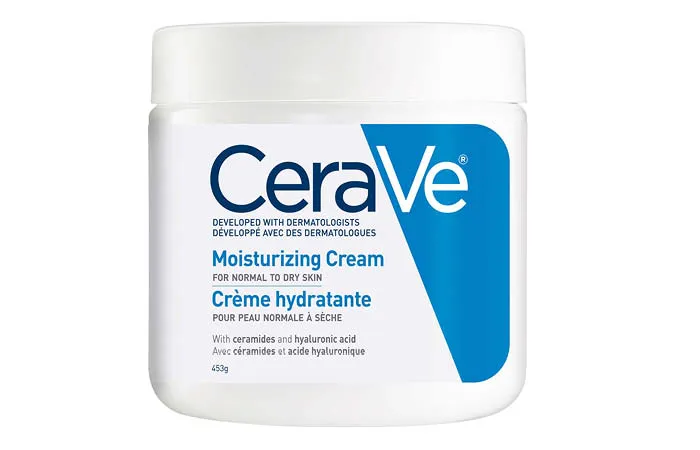Understanding Whitening Moisturizers
The quest for radiant, even-toned skin has led many to explore the world of whitening moisturizers. But what exactly are these products, and how do they differ from regular moisturizers? Whitening moisturizers are specifically formulated to address skin discoloration, such as dark spots, uneven skin tone, and hyperpigmentation. They combine the hydrating benefits of a moisturizer with active ingredients designed to lighten and brighten the skin. Unlike products that simply conceal imperfections, whitening moisturizers work at a deeper level to reduce the production of melanin, the pigment responsible for skin color.
How Whitening Moisturizers Work
Whitening moisturizers employ a multi-pronged approach to achieve their effects. The primary mechanism involves targeting melanin production. Active ingredients, like vitamin C, niacinamide, and kojic acid, work to inhibit tyrosinase, an enzyme crucial for melanin synthesis. By reducing melanin production, these ingredients help to fade existing dark spots and prevent new ones from forming. Furthermore, many whitening moisturizers also contain ingredients that promote cell turnover, helping to shed the top layer of pigmented skin cells and reveal brighter, healthier skin underneath. Some formulas also include antioxidants to protect the skin from further damage that can worsen discoloration.
Key Ingredients to Look For
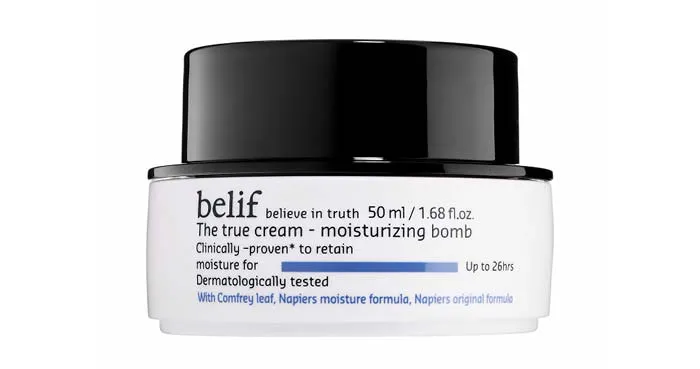
When selecting the best whitening moisturizer, it’s essential to understand the key ingredients that deliver results. Vitamin C, a powerful antioxidant, not only brightens the skin but also protects against environmental damage. Niacinamide, a form of vitamin B3, reduces inflammation, minimizes pores, and evens skin tone. Kojic acid, derived from fungi, inhibits melanin production and lightens dark spots. Arbutin, a natural derivative of hydroquinone, also helps to lighten the skin. Retinoids, though often found in anti-aging products, also boost cell turnover and can help with skin brightening. Always check the ingredient list and ensure the product contains at least one of these active components to achieve desired effects. (Image: whitening-moisturizer-ingredients.webp)
Top 5 Secrets to Choose the Best Whitening Moisturizer
Secret 1 Research and Read Reviews
Before committing to a whitening moisturizer, conduct thorough research. Read online reviews from various sources, including product websites, beauty blogs, and customer testimonials. Pay attention to what users say about the product’s effectiveness, any potential side effects, and overall satisfaction. Look for reviews that discuss the product’s impact on skin tone, dark spots, and overall radiance. Checking reviews can help you gauge the authenticity of the claims and whether the product suits your skin type and concerns. (Image: whitening-moisturizer-reviews.webp)
Secret 2 Identify Your Skin Type
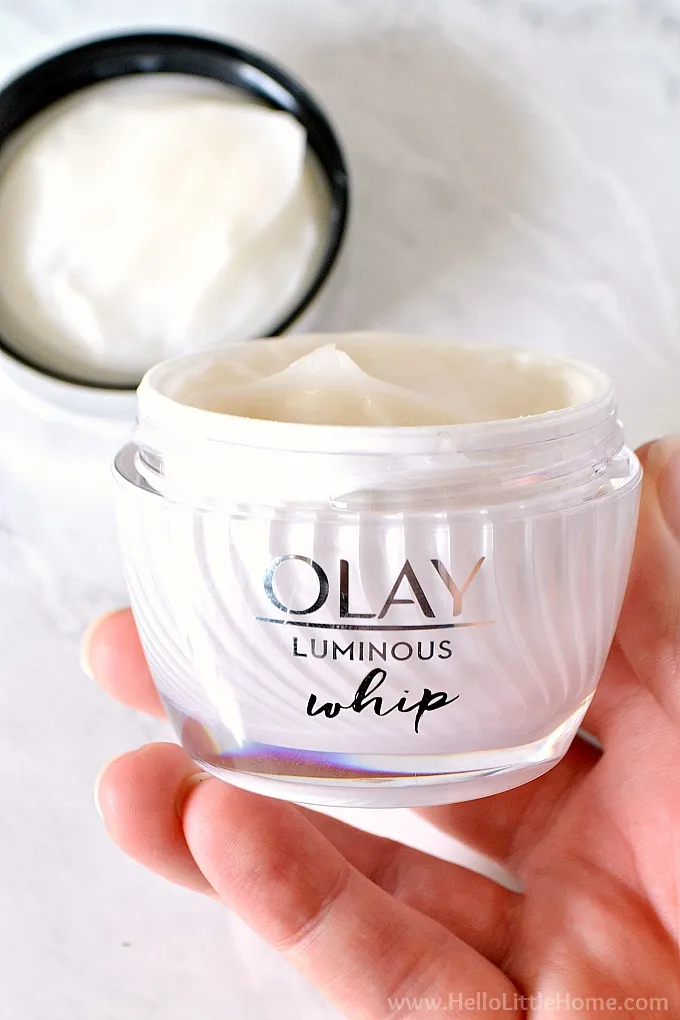
Understanding your skin type – whether it’s oily, dry, combination, or sensitive – is critical when choosing the best whitening moisturizer. Oily skin benefits from lightweight, oil-free formulas that won’t clog pores. Dry skin requires richer, more emollient moisturizers that provide intense hydration. Combination skin needs a balance of both, potentially using different products for different areas of the face. Sensitive skin demands products with gentle, non-irritating ingredients, free from harsh chemicals and fragrances. Selecting a moisturizer tailored to your skin type will enhance its effectiveness and minimize potential irritation. (Image: skin-type-moisturizer.webp)
Secret 3 Consider Your Skin Concerns
Beyond skin type, consider your specific skin concerns. Are you primarily battling dark spots, uneven skin tone, or overall dullness? If dark spots are your primary concern, look for moisturizers with ingredients like vitamin C or kojic acid, which target melanin production. For uneven skin tone, niacinamide or arbutin can be beneficial. If you’re dealing with both dark spots and dullness, a product with a combination of active ingredients is ideal. Additionally, consider any other skin issues, such as acne or sensitivity, and choose a moisturizer that addresses those concerns without exacerbating them. (Image: dark-spots-moisturizer.webp)
Secret 4 Check the SPF Level
Sun protection is absolutely essential when using a whitening moisturizer, as the active ingredients can make your skin more sensitive to the sun. Choose a moisturizer that includes a broad-spectrum SPF of at least 30. Sun exposure can worsen existing dark spots and trigger new ones, negating the benefits of your whitening product. Applying sunscreen daily, even on cloudy days, is a non-negotiable step in your skincare routine. This will not only protect your skin from further damage but also maximize the effectiveness of your whitening moisturizer, allowing you to achieve the desired results faster. (Image: spf-moisturizer.webp)
Secret 5 Consistency is Key
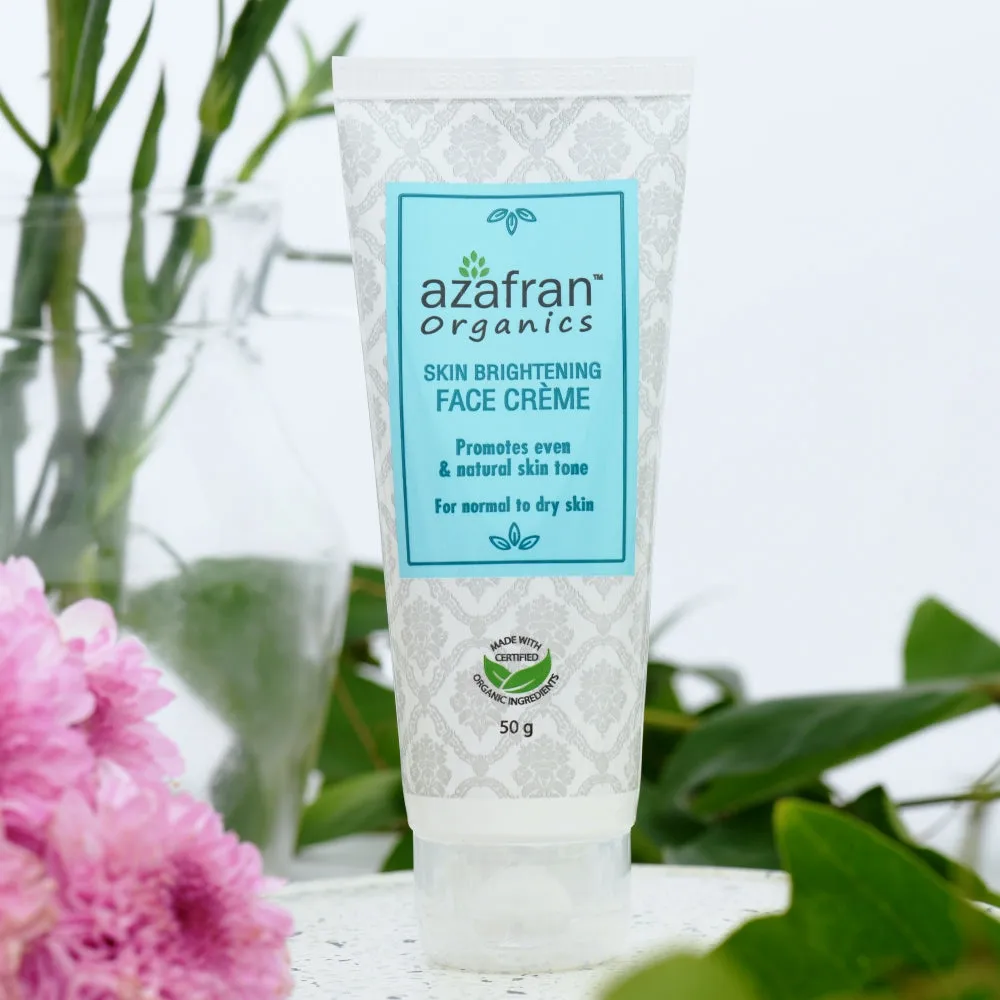
The journey to brighter, more even-toned skin requires patience and consistency. Whitening moisturizers typically take several weeks or months to show noticeable results. Be consistent with your application, following the product’s instructions carefully. Incorporate the moisturizer into your daily skincare routine, applying it regularly, usually twice a day, after cleansing and toning. Don’t get discouraged if you don’t see immediate results; persistence is crucial. Regularly using the best whitening moisturizer, combined with other skincare practices, like regular exfoliation, helps achieve and maintain the desired outcomes.
Benefits of Using Whitening Moisturizer
Improved Skin Tone and Texture
One of the primary benefits of using a whitening moisturizer is the improvement in overall skin tone and texture. Regular use helps to even out skin tone by reducing the appearance of uneven pigmentation, such as sunspots and age spots. The active ingredients promote cell turnover, leading to a smoother, more refined skin texture. As the top layer of dead skin cells sheds, the skin appears brighter and more radiant. Consistent use can transform your skin from dull and uneven to a smoother, more luminous complexion. (Image: hydrated-skin.webp)
Reduced Appearance of Dark Spots
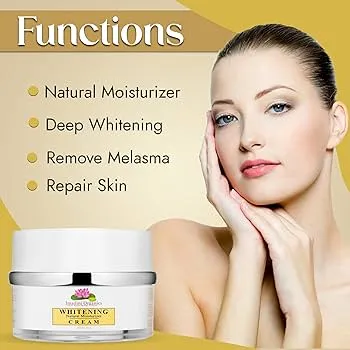
Whitening moisturizers are exceptionally effective at reducing the appearance of dark spots caused by sun damage, aging, and acne scars. The active ingredients target melanin production, causing existing dark spots to fade over time. Regular use can significantly diminish the visibility of these spots, leading to a more even and clear complexion. The continued use of a whitening moisturizer, especially in conjunction with SPF, helps prevent the formation of new dark spots, ensuring long-term maintenance of a clear skin tone. (Image: dark-spots-moisturizer.webp)
Enhanced Skin Hydration
In addition to whitening benefits, most whitening moisturizers provide essential hydration. Dry, dehydrated skin can exacerbate the appearance of dark spots and uneven skin tone. By moisturizing the skin, these products improve its overall health and appearance. Hydrated skin appears plumper, smoother, and more radiant. The combination of whitening agents and hydrating ingredients makes these moisturizers a comprehensive solution for achieving a brighter, healthier complexion. Consistent hydration also helps to maintain the effectiveness of the whitening ingredients. (Image: hydrated-skin.webp)
Tips for Maximizing Results
Proper Application Techniques
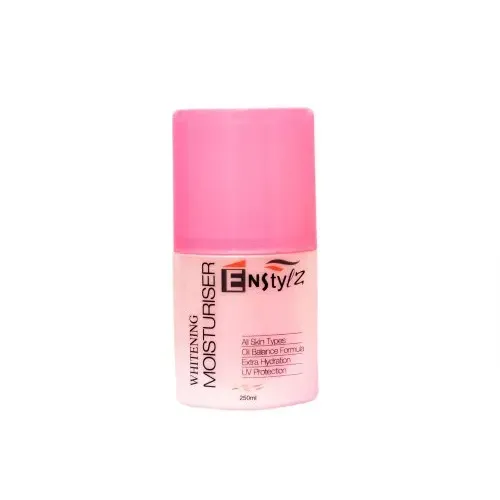
To maximize the effectiveness of your whitening moisturizer, proper application techniques are essential. Apply the moisturizer to a clean, dry face. Use gentle, upward motions when applying the product to your face and neck, avoiding harsh rubbing. Gently massage the moisturizer into your skin until it’s fully absorbed. Apply the moisturizer twice daily, in the morning and evening, for best results. Ensure you are using the correct amount; generally, a pea-sized amount is enough for the entire face. Consistent and correct application will help the active ingredients penetrate the skin effectively, leading to the best results. (Image: moisturizer-application.webp)
Combine with Other Skincare Products
Enhance the results of your whitening moisturizer by combining it with other complementary skincare products. Incorporate a gentle cleanser and toner into your routine to prepare your skin for better absorption. Exfoliate regularly to remove dead skin cells and promote cell turnover, which helps the active ingredients penetrate the skin more effectively. Consider using a serum with ingredients like vitamin C or hyaluronic acid to boost hydration and antioxidant protection. Layering your skincare products in the correct order will further maximize your skin care routine. The combination of a good whitening moisturizer with other products can create a well-rounded skincare regimen, leading to optimal results. (Image: whitening-moisturizer-ingredients.webp)
Maintain a Healthy Lifestyle
The impact of a whitening moisturizer is amplified by maintaining a healthy lifestyle. Drink plenty of water to keep your skin hydrated and promote overall health. Consume a balanced diet rich in fruits, vegetables, and antioxidants to nourish your skin from the inside out. Get sufficient sleep, as rest supports skin cell repair and regeneration. Manage stress through relaxation techniques, as stress can contribute to skin problems. Avoid smoking and limit alcohol consumption, as both can damage the skin. A healthy lifestyle supports your skin’s natural processes and boosts the effectiveness of your whitening moisturizer, leading to a more radiant and youthful complexion. (Image: healthy-lifestyle-skin.webp)
Conclusion
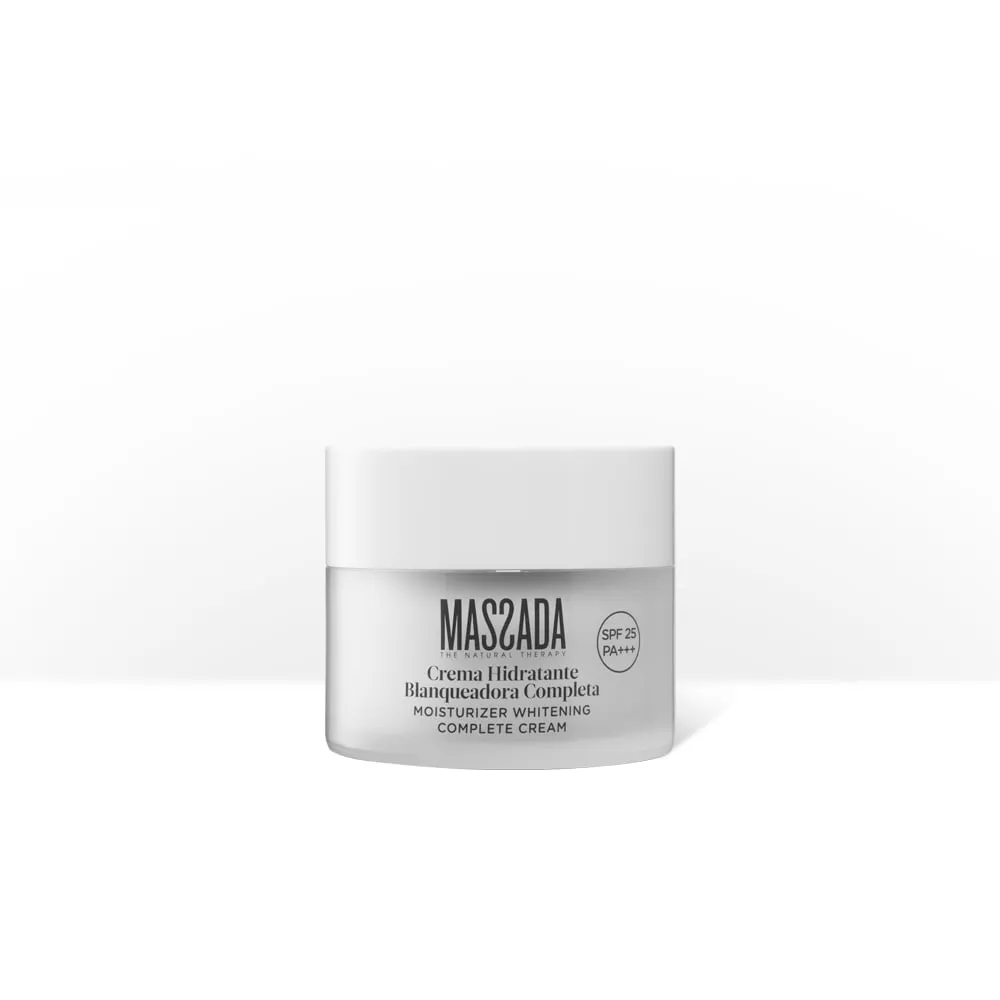
Choosing the best whitening moisturizer involves understanding the science behind it, considering your skin type and concerns, and selecting products with effective ingredients. Remember to read reviews, check the SPF level, and practice consistency. By combining the right moisturizer with a comprehensive skincare routine and a healthy lifestyle, you can unlock the secrets to brighter, more even-toned skin. Embrace the journey, and you’ll be well on your way to achieving a radiant complexion.
